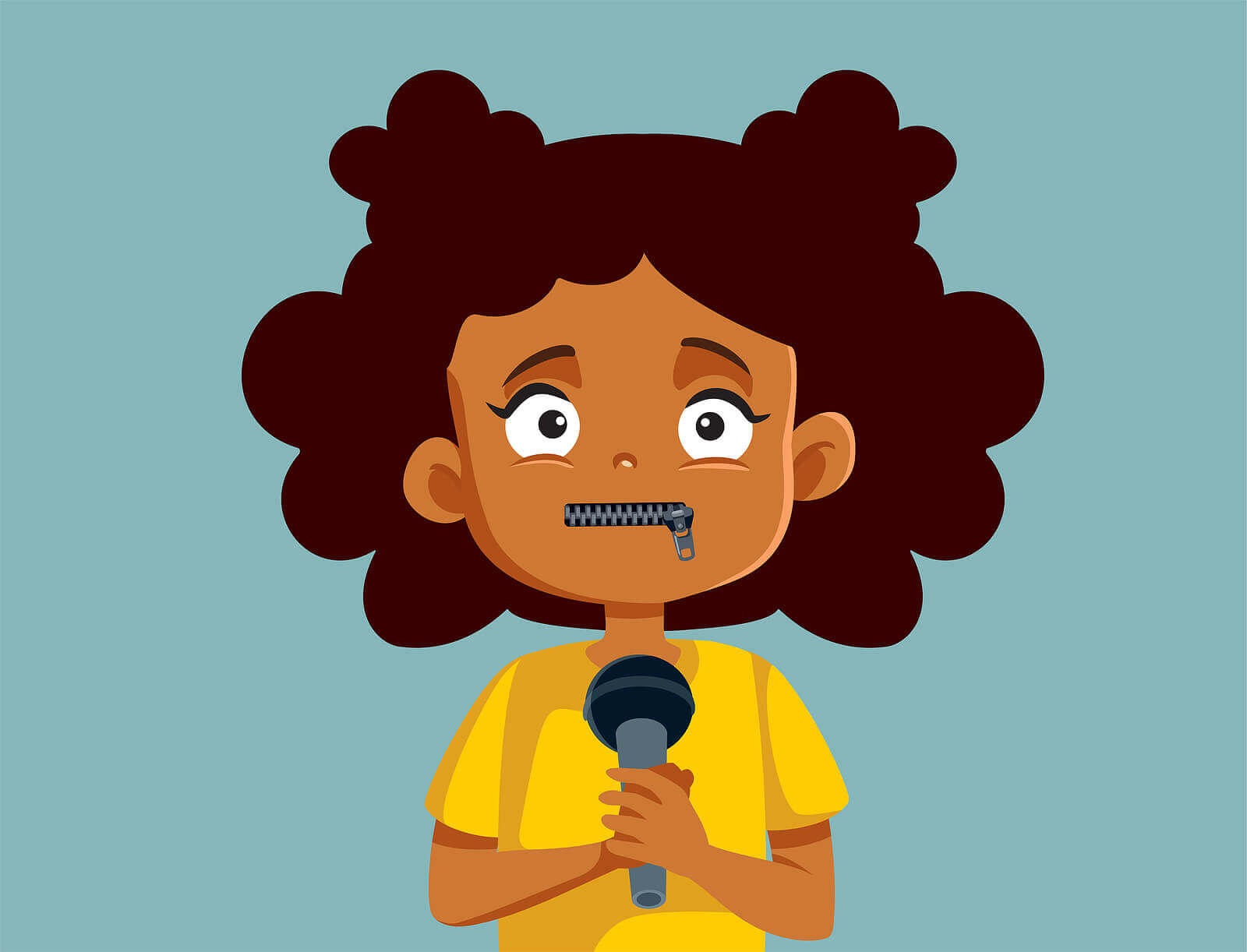Getting a diagnosis of any kind for your child can be a daunting experience. It can be difficult to comprehend and process that your child needs additional help. During this time you will be given information about the journey of helping your child.
Selective mutism is no different than any other diagnosis in that regard. By now you might understand what selective mutism is and how to begin helping your child. However, there might still be some confusion about selective mutism, such as; “My child is a chatterbox at home, so why can’t they just talk at school?” You might be confused and frustrated. So let’s discuss ten things about selective mutism that you need to know to help you better understand this anxiety-based social communication disorder.
Talking at home does not mean they can talk at school or at a birthday party.
This is particularly challenging to understand because you see your child speaking normally at home, but elsewhere they are silent. Remember, children with selective mutism will speak typically in situations where they feel comfortable. They do not speak in other situations because of the higher levels of anxiety they feel. This includes school, family gatherings, birthday parties, and more.
Your child is not being rude or defiant.
Someone asks your child their name at the local playground and they remain silent. This behavior is often mistaken for your child being rude or spoiled. However, your child has such high levels of fear and anxiety at that moment that they can’t utter their name. Silent behavior should be seen as your child communicating their anxiety with the situation, not them behaving rudely.
They aren’t just shy.
Selective mutism is more than just shyness. The shy child will eventually warm up at a birthday party or in the classroom. They will relax, and communicate normally as they adapt. A child with selective mutism will not. We should avoid labeling them as “shy.” It’s inaccurate and unhelpful.
You can’t pressure them into talking in situations where they are silent.
It is so hard to stand by as a parent, knowing your child has an amazing voice, only for them to not respond when asked a question or not engage at a birthday party. You might feel uncomfortable or embarrassed, so you continue trying to get your child to talk. Pressuring your child into participating in these situations will ultimately backfire. This only causes your child to feel even more anxiety, further decreasing their chances of using their voice.
It’s not just social anxiety.

It’s not on purpose and it’s not their choice.
You might think that because you know your child can talk at home, they are choosing to not speak elsewhere. You have seen them engage in conversations within comfortable environments, so you come to the conclusion that they’re staying silent on purpose. This is not the case. What happens in situations that are outside of your child’s “comfort zone” (e.g. at school, a birthday party, etc.)? Anxiety levels are high and your child is frozen with fear. They remain mute in order to self-protect. Understand that this motionless behavior is not a choice, but rather fear-driven. Acknowledging this is important in helping your child.
They won’t just grow out of it.
Oftentimes as children develop we hear the phrase “They will grow out of it”. Unfortunately, this is not the case with selective mutism. Children with selective mutism don’t just speak when they are ready. They will, in fact, continue engaging in silence in situations that cause them anxiety. It is, therefore, important to recognize the signs of selective mutism and seek out a caring mental health professional who can help you in a supportive way.
It’s not necessarily due to trauma.
It is important to remember that children with selective mutism will speak normally in at least one situation, but not in others. On the other hand, children with traumatic mutism will stop speaking suddenly in all situations after witnessing a traumatic event ( for example, seeing a grandparent die and not being able to process it). We should not confuse Selective mutism and traumatic mutism with each other. There are differences in their symptoms and ultimately their treatment.
It is highly misunderstood.
It is reported that less than 1% of children are affected with selective mutism. However, it is a frequently misunderstood disorder. This leads to misdiagnosis, underdiagnosis, and treatment that does not effectively treat the needs of the child with selective mutism. It is important to find a professional who is knowledgeable in diagnosing and treating selective mutism so your child can get the treatment right for them.
Your average mental health professional is probably not familiar with how to treat selective mutism.
Selective mutism is treatable. With the right resources, your child can learn to be confident and brave with their voice. However, the average mental health professional probably doesn’t know much about selective mutism or how to go about treating it. If you suspect your child has selective mutism and want to begin treatment, it is important to first speak to your child’s pediatrician. You will then want to find a mental health professional who knows what selective mutism is. The right professional will be able to accurately diagnose and come up with an individualized treatment plan that will work for you and your child.

Selective mutism is an anxiety-based social communication disorder that requires early intervention. Early intervention can help your child overcome their fear of speaking in situations that cause anxiety. You and your family don’t have to navigate this on your own. With the right support and treatment, your child can move forward in their journey to finding confidence, using their brave voice, and overcoming selective mutism.
Start Meeting With A Child Therapist in Branchburg, NJ, or Scotch Plains, NJ For Selective Mutism
If your child has selective mutism our child therapists can help you create a plan moving forward. At Brave Minds Psychological Services we want to provide you with the resources that you and your child need as you navigate selective mutism. In order to get started in child therapy for anxiety follow these steps:
- Connect with Brave Minds Psychological Services today.
- Receive a free consultation with a compassionate child therapist.
- Support your child in navigating selective mutism
Other Counseling Services We Offer In Scotch Plains, NJ
Our licensed therapists and counselors offer therapeutic services for children, teens, and adults. Available services for children and teens include anxiety counseling for children, child sexual abuse therapy, anxiety treatment for teens, and teen social phobia therapy. Our adult mental health services include adult anxiety counseling, couples counseling, counseling for parents, postpartum counseling, birth trauma therapy, and sexual assault counseling. If you’re interested in learning more about our services here at Brave Minds Psychological Services or online, please contact our Scotch Plains counseling office! Proud to serve Scotch Plains, Westfield, Cranford, New Providence, and the surrounding areas in New Jersey.




